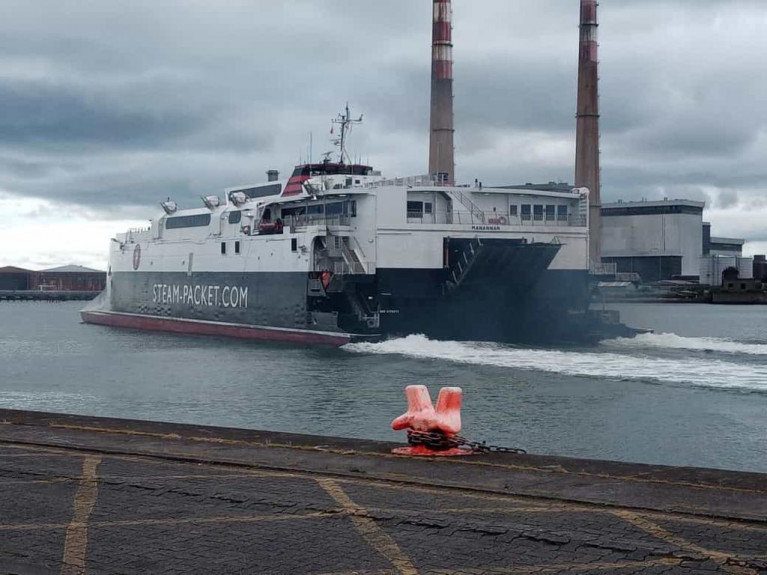Displaying items by tag: Catamaran ferry
Due to the pandemic Manx ferry sailings not seen since September 2019, finally resumed on the Dublin-Douglas seasonal service with crossings carried out by a catamaran fastcraft, writes Jehan Ashmore.
The catamaran, Manannan operated by Isle of Man Steam Packet made the outward crossing from the Manx capital to Dublin on the summer service which takes approximately 2 hours 55 minutes.
Resumption of the seasonal operated Irish Sea route follows the Manx Government's easing of Covid-19 border travel restrictions that became effective from 28th June.
Manannan also operates other seasonal based routes linking the Isle of Man and the UK, mainly running the Douglas-Liverpool link, where today the craft has been kept busy.
In addition the 96m vehicle carrying catamaran built in 1998 by InCat, Tasmania, also serves Douglas-Belfast with the next scheduled sailing to the Ulster city on Sunday. A crossing time of 2 hours 45 minutes is advertised, though some sailings run by the conventional ferry, Ben-My-Chree involves a more leisurely passage of almost five hours.
As for the Manannan's next return to Dublin, this is to take place on Tuesday, 20th July, with a departure from Douglas of 07.00hrs. A corresponding departure from Dublin by the fastcraft is at 10.45hrs with an arrival in Douglas during lunch-hour.
While Manannan's roster sees the fastcraft running on several routes, the Ben-My-Chree is mostly concentrated on the year round Douglas route to Heysham in north-west England.
The ageing ferry last month returned to service following longer delays due to unforeseen issues while dry-docking on Merseyside.
As Afloat previously reported, around 31,600 passengers have booked to travel on Steam Packet vessels during July, 16,955 of which are due to sail on board the Manannan.
Manannan was introduced in 2009, whereas Ben-My-Chree dating to 1998, is however to be replaced by a larger custom-built ro-pax due to enter service in 2023. The newbuild is to be named Manxman.
























































